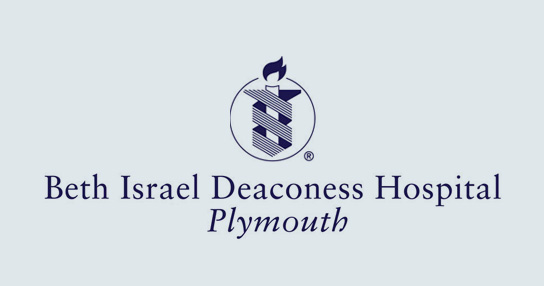 Jordan Hospital in Plymouth, Mass., has undertaken an innovative strategy to deal with patient falls, which is a common problem that occurs just about everywhere that care is provided -- from hospitals to homes.
Jordan Hospital in Plymouth, Mass., has undertaken an innovative strategy to deal with patient falls, which is a common problem that occurs just about everywhere that care is provided -- from hospitals to homes.
People who are ill, recovering from surgery, on new medications - to name just a few of numerous reasons - often fall down, causing serious injury. It's a phenomenon that has caused all hospitals to devote special attention to reducing falls.
Lisa Litchfield Zani, Inpatient
Service Line Administrator at
Jordan Hospital, Plymouth
PatientCareLink posts falls data for each hospital in the state. By using measures approved by the National Quality Forum (NQF), patients and their families can see how well a hospital is performing in reducing falls. The NQF "nursing-sensitive measures" provide a framework to measure the quality of nursing care and assess the extent to which nurses in hospitals contribute to patient safety and a professional work environment. They also help hospitals identify where they may be able to improve their care.
Lisa Litchfield Zani, RN, BSN is the inpatient service line administrator at Jordan Hospital. She served on the Massachusetts Organization of Nurse Executives' Management of Practice Committee, studying hospitals across the state and nation to see how they've combated falls.
What she found is that there's a pattern of uniformity to why people fall and a variety of strategies to prevent them.
For instance, women generally fall backwards and are often at risk for hip fractures. Men fall forward and have a higher incidence of head injuries. She says the literature shows that "anyone taking more than three medications - no matter what they are - puts them in jeopardy of falling," adding, "Our culture is very accepting of medications and I think we're heading towards a greater incidence of falls."
The elderly patient presents special concerns for a variety of reasons. They may have muscle or skeletal issues that make them unstable. Or any form of dementia may result in elderly hospital patients forgetting that they just had surgery and may have trouble getting up from a bed or chair.
"Sometimes it's not that they are forgetful but that they remember how they get around at home, relying on certain pieces of furniture for stability," Litchfield Zani says. "But in a new setting in a hospital, those familiar touchstones are no longer there and they're at risk of falling."
Once an elderly person falls, it has serious consequences, she says. Following a tumble a senior citizen may have a fear of falling again; that fear leads to immobility, and the immobility leads to a deterioration of muscle strength. These deteriorations lead to an even more degraded state and the increased chance of another fall.
Even younger people who have injured themselves for the first time may not think they're hurt that bad, or may have trouble accepting that they're once athletic nature is compromised. That type of person is also at risk of falling.
"I wish I could say there's a fall prevention recipe that really works for everyone, but there's just not one category of people that fall," Litchfield Zani says.
So hospitals rely on some tried and true methods of screening to assess fall risk and then precautions to prevent them.
Litchfield Zani oversees an anti-falls regimen in just about every sector of the hospital. All patients are assessed on their current mobility, whether they've ever fallen before (which she says in the best indicator of future problems), and on the medications they're taking. Patients that are high risk for falling have difficulty transferring - that is, on how they move from a bed to a chair and how they get to the bathroom. They may be on medications that cause dizziness or balance problems. All of that screening is put together to arrive at a fall protocol for the patient.
"The protocol educates our nurses about the risk factors," she says, and provides guidelines for proven interventions to prevent falls and injury. Patients are given a special armband to denote their fall risk and a symbol is placed on their door signifying to their caregivers that they are at risk for falling. Those at risk are noted on the whiteboard at the nursing station so that a clinician seeing an at-risk patient getting up without assistance can rush over and help. Patients are given slipper socks with no-skid treads and an assistive device is always at the bedside. We also use bed alarms to notify staff when a patient is getting out of bed or a chair without assistance.
"Those are the things that everyone is doing or should be doing," Litchfield Zani says. "We're using evidence-based practice to do the best we can."
JORDAN'S SPECIAL UNIT
Where Jordan Hospital differs, Litchfield Zani says, is that "we've captured the population" most likely to fall. Jordan Hospital created an 8-bed "pod" unit that contains inpatients from the greater population of at-risk patients. Many are especially confused or have interrupted their medical treatment somehow (like pulling out an IV), or they experience "sundowning" - that tendency of some patients with dementia to get combative towards late afternoon/early evening.
Using a computer program that pulls out the most at-risk, Jordan Hospital's RNs meet every morning at 8 am where the unit's nursing director Melissa Kilham RN, BSN, screens patients house-wide that might meet the criteria for the fall prevention unit. Some highly at-risk patients are sedentary so they do not have to be moved. Others are mobile and are therefore considered good candidates. Since there are so many patients in the hospital at any given time that are at high risk for falling, we make it our goal to keep the unit filled at all times.
"We have two nurses and two nurses aides in the unit so we have very good coverage," she says. Although the unit costs more to staff it saves cost by decreasing the patient care sitters. The staff that are expert at caring for these patients engage in activities with the patient to keep them exercising and occupied. Patients are up in a chair for meals and ambulating a couple of times per day if appropriate.
"We're very hands on, unbelievably so at times," she says. Jordan Hospital's RNs in the pod conduct 15-minute checks on patients, querying them as to whether they're too hot or cold, hungry or thirsty, in pain or needing to use the bathroom. "We check with them to fulfill their basic needs so they don't have a need to get up without assistance."
Patients in the pod have their medications re-scheduled (if possible) so they do not have to be woken up in the night. The use of diuretics is scheduled so that they are assisted to the bathroom thereafter.
An added benefit is that Jordan Hospital's Vice President of Operations and geriatrician James Fanale, MD, is working with three geriatricians on staff to work with the unit. They will provide training to other clinical staff, review policy and procedures, and evaluate using the Beer's Criteria, which is an evidenced-based system that lists certain medications a patient should or should not receive to reduce the risk of falls. They will also offer consultation on appropriate care.
Jordan Hospital looks for signs of post-prandial hypotension , meaning that there's a drop in a patient's blood pressure after meals, which increases the risk of falling.
"Now we do blood pressure screening after meals, and try to keep patients sitting during this time" Litchfield Zani says, "and we hope in the future we'll be able to do rounds with the doctors on recommendations for alterations in the patient's medication regimen."
The bottom line of the Jordan Hospital process improvement initiative is that come April 2010, the unit will have been existence for two years and has been the site of very few falls - much lower than the general population. At the same time, staff has developed new skills that they can use in other parts of the facility.
"It's constant work to perform screenings and follow ups and regular checks on patients, but the rewards are great," Litchfield Zani adds. "A fall, especially in an elderly patient, can be devastating to them. I think we're making some progress at Jordan Hospital."
Patient Falls
The National Quality Forum (NQF) defines a fall as an unplanned descent to the floor (or extension of the floor e.g., trash can or other equipment) with or without injury to the patient.

